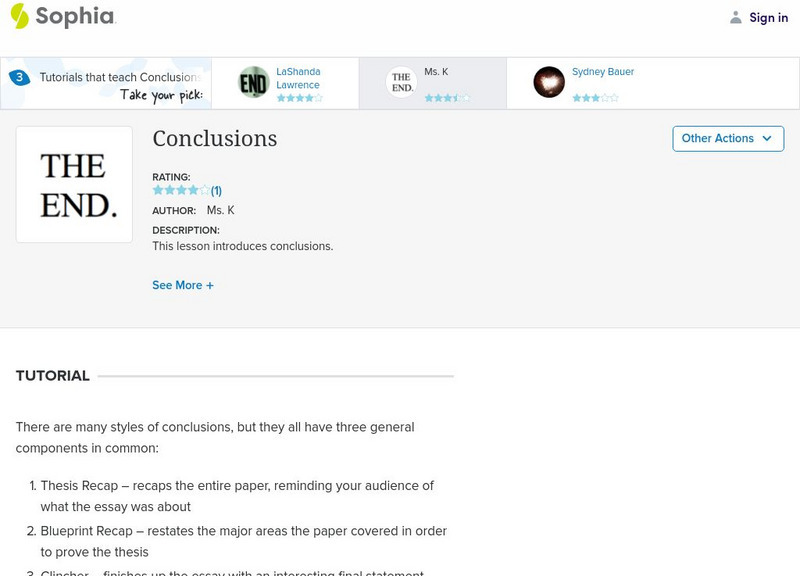Ohio University
Ohio.edu: Point of View and Narrative Voice
This is an article defining point of view, explaining the types of point of view, and discussing voice and tone. It was originally published at http://teenwriting.about.com/library/weekly/aa111102e.htm.
Other
Learning Farm: Compare and Contrast Informational Texts
In this narrated tutorial, students are presented with information about first and third points of view, then read two passages about the same event and answer questions that compare how the topic is presented. After completing the...
Leaf Group
Classroom: How to Write Narrative Conclusions
This article focuses on how to write conclusions for narratives by sharing a takeaway message, a lesson or a reflection -- a new discovery of meaning in life -- for your reader. W.9-10.3e Conclusion, W.11-12.3e Narrative Conclusion
Better Lesson
Better Lesson: Sensory Details
Middle schoolers will learn how to enhance their narrative writing by incorporating sensory details to convey experiences and events. A power point presentation on sensory details is included.
Organization for Community Networks
Organization for Community Network: Writing Successful Paragraphs
How can you learn to write a successful paragraph? This site features a lesson plan to help your students sharpen their writing skills.
E Reading Worksheets
E Reading Worksheets: Writing Narrative Essays
This article provides the components of narrative writing. The author emphasizes ways to make narrative writing better. W.9-10.3e Conclusion
Other
Re:fiction: Making Ends Meet: How to Write a Good Ending to a Story
This article from Re:Fiction magazine offers tips on different ways to end a piece of narrative writing.
BBC
Bbc Bitesize: Writing
The BBC offers quick (bitesize) activities, revision options, and quizzes on a variety of writing skills, covering writing arguments, writing factual documents, and writing stories.
Capital Community College Foundation
Guide to Grammar and Writing: The Narrative Essay
Need help picking out the elements of a narrative? Check this site out from Capital Community College, and you'll see some background information, a sample essay, and directed questions to ask yourself about a text. W.9-10.3 Narrative,...
PBS
Pbs Learning Media: The Game
After watching this brief interchange over a chessboard, please write what you think the dialogue is for the two players.
PBS
Pbs Learning Media: Traveling
Is it more important to know where you are going or where you have been?
AdLit
Ad lit.org: Literacy Instruction in the Content Areas: The Core of Improvement
Every content area, from chemistry to history, has unique literacy demands: texts, knowledge, skills. But how are these critical literacies learned, let alone taught?
AdLit
Ad lit.org: Pre Reading Activities for El Ls
Pre-reading activities can engage student interest, activate prior knowledge, or pre-teach potentially difficult concepts and vocabulary. They also offer a great opportunity to introduce comprehension components such as cause and effect,...
University of Victoria (Canada)
The U Vic Writer's Guide: Writing Essays: The Length of the Introduction
This writing tutorial teaches you the proper length of an introductory paragraph.
Blackdog Media
Classic Reader: "The Master of the 'Chrysolite'" by G. B. O'halloran
Text of the short story "The Master of the 'Chrysolite'" by G. B. O'Halloran. (Free site registration offers some additional features, e.g., the ability to insert annotations.)
Other
Guide to Writing a Basic Essay: Write the Introduction
How to create a memorable introduction. This good advice can be applied to writing essays, speeches, anecdotes, and more.
Other
Gallaudet University: English Works: Guide to Different Types of Essays
English Works site has suggestions on how to write an essay to convey helpful information. This site offers examples of eight different types of essays and graphic organizers.
Grammarly
Grammarly Handbook: Conclusion or Summary
This Grammarly Handbook resource explains the purpose on writing a summary or conclusion of an essay. Brief "how to" tips are provided for writing a summary or conclusion to an essay.
Annenberg Foundation
Annenberg Learner: Journey North: Reading Strategies: Paraphrase / Retell
Learn how to paraphrase a text by using a list of guiding questions.
University of Victoria (Canada)
The U Vic Writer's Guide: Literary Term: Bombast
This site from The UVic Writer's Guide provides an excellent description of bombast language. Content includes a literary example.
Other
Grammar book.com: Effective Writing
Brief list from The Blue Book with examples of how to take ineffective writing and transforming it into effective writing.
University of Victoria (Canada)
The U Vic Writer's Guide: Writing Essays: Introductions
This site provides a brief overview of introductions, exploring what they are supposed to mean for an essay in writing.
Houghton Mifflin Harcourt
Holt, Rinehart and Winston: Elements of Literature: Determining Methods of Characterization [Pdf]
A brief organizer in which students can document how a character in literature is presented, through either direct or indirect characterization. Provides labels, examples, and sections for textual support.
Sophia Learning
Sophia: Conclusions: Lesson 3
This lesson introduces conclusions. It is 3 of 5 in the series titled "Conclusions."




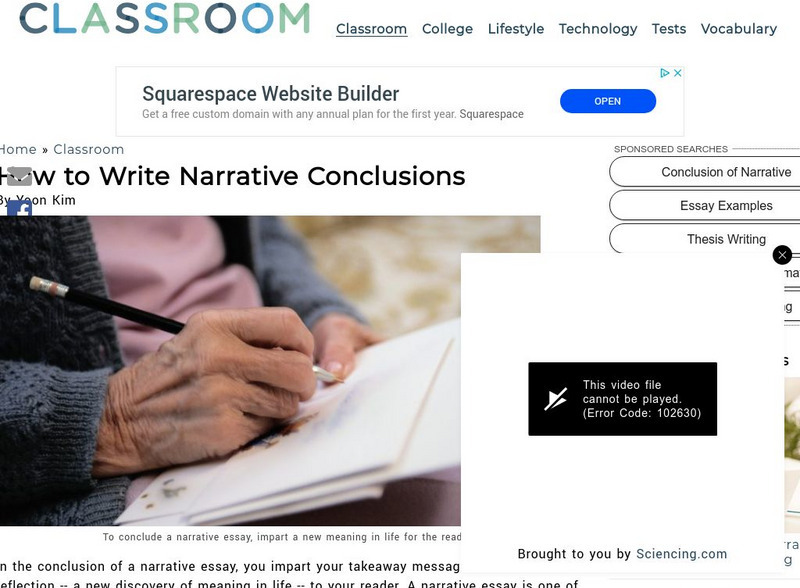
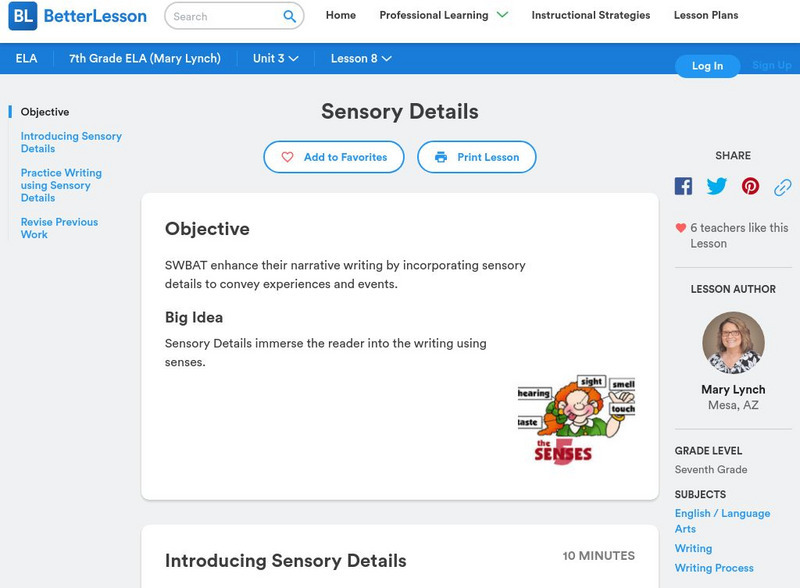



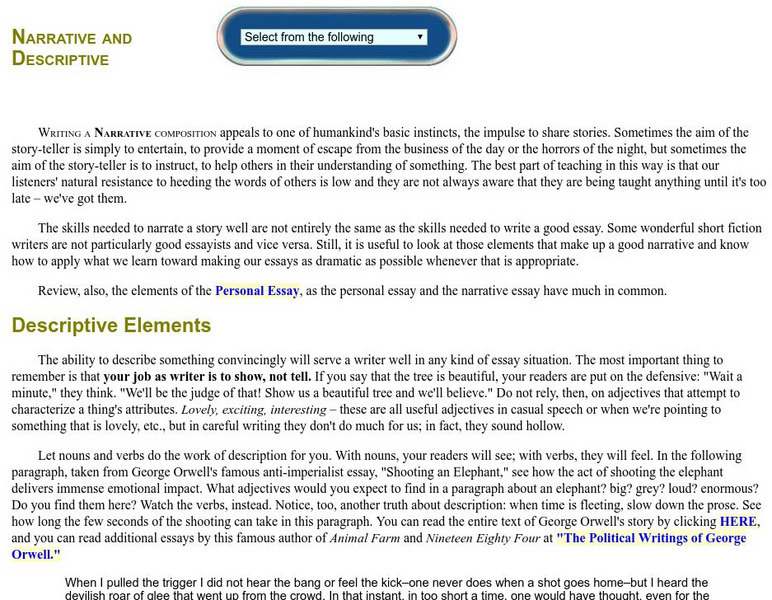
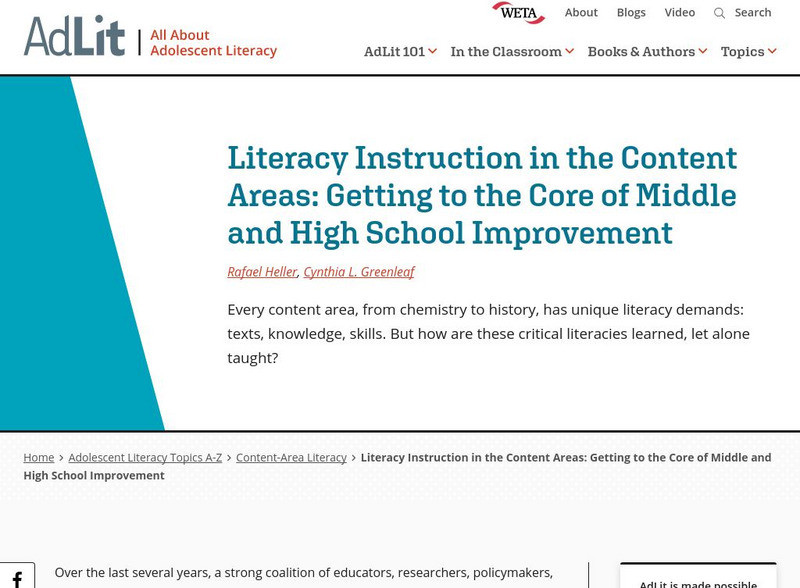
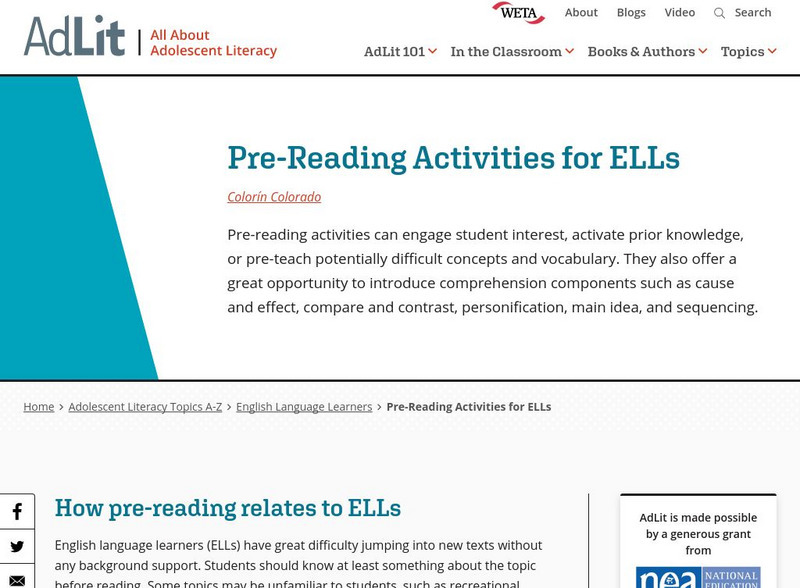


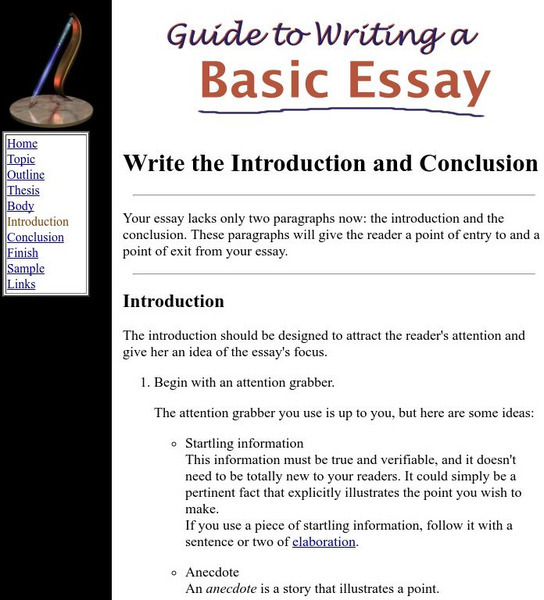
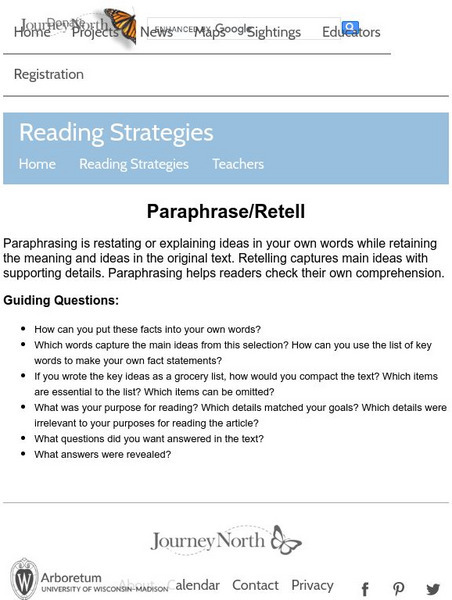

![Holt, Rinehart and Winston: Elements of Literature: Determining Methods of Characterization [Pdf] Graphic Holt, Rinehart and Winston: Elements of Literature: Determining Methods of Characterization [Pdf] Graphic](http://content.lessonplanet.com/resources/thumbnails/410109/large/bwluav9tywdpy2symdiwmduymc0ymjy4mc0xz3pvamf3lmpwzw.jpg?1589985471)
